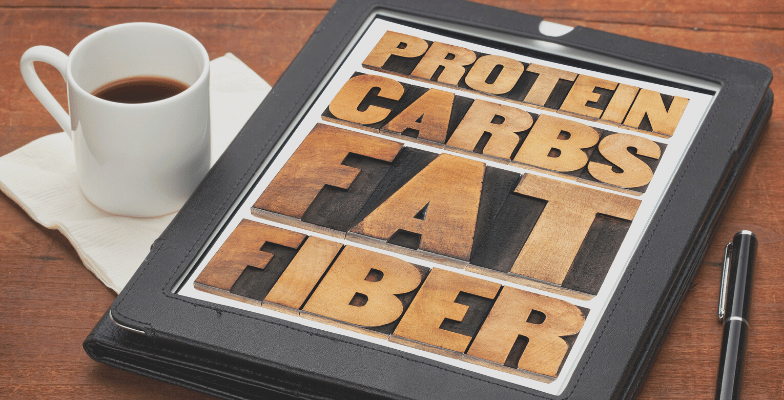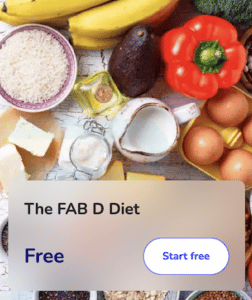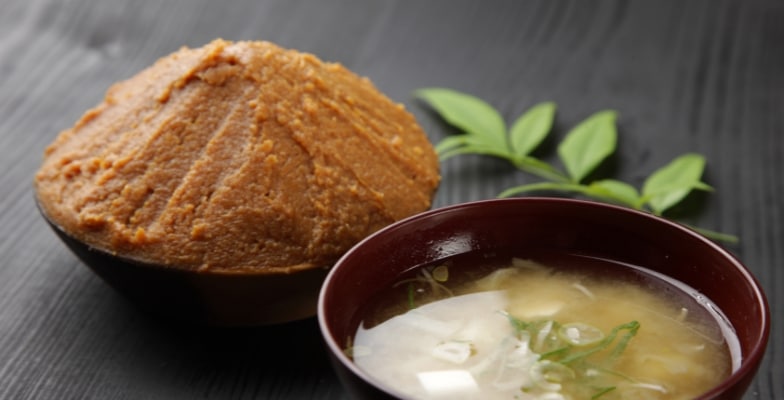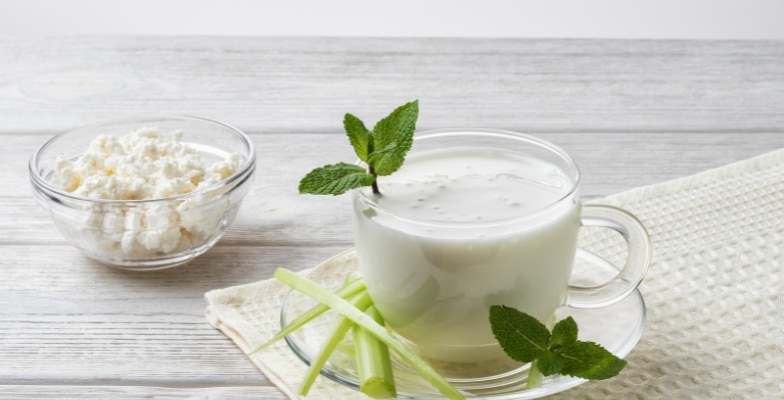Macros For Fat Loss | How To Calculate Your Macros

Introduction
If you want to want a cut-to-the-chase macronutrient calculator for weight loss that helps you calculate your macros for cutting, then you can use my free Macro Calculator.
Related: Fabulous Body Macronutrient Calculator
But if you want to read some basic science about why I recommend a specific macro for fat loss, then stick around!
It’s also a pretty obvious fact that if you don’t eat less than your TDEE, which is also your maintenance calories, no matter what your macros are, you will not lose weight!
I also have a kickass TDEE calculator that makes like quite simple. You can calculate your TDEE first and then come back to this post; else, keep reading…
Related: Fabulous Body TDEE Calculator
Macros for Fat Loss-Yes, they matter for most people!
For them, more than 50% of calories come from carbohydrates. It’s unfortunate that most carb sources found in the market are processed. When you eat refined and processed carbs, it causes your insulin levels to spike pretty fast. Over time this leads to insulin resistance.
-Insulin resistance is the leading cause of type-2 diabetes. 1https://www.ncbi.nlm.nih.gov/pmc/articles/PMC3314346/
-No wonder type-2 diabetes is an epidemic, with more than 400 million people having full-blown diabetes. 2https://diabetesjournals.org/diabetes/article/66/6/1432/39932/Type-2-Diabetes-Demystifying-the-Global-Epidemic
-India is the diabetic capital of the world, with the current number of 51 million expected to rise to 87 million by 2030. 3https://diabetesjournals.org/diabetes/article/66/6/1432/39932/Type-2-Diabetes-Demystifying-the-Global-Epidemic
What is even worse is that close to 100 million in India are pre-diabetic, which is also termed metabolic syndrome-X. Eventually, many of them will develop type-2 diabetes. Type-2 diabetes has tremendously increased in the past few decades…why?
Besides other factors, eating refined carbs, including calories from sugar-sweetened beverages, is the number one reason! When you tell someone that macros don’t matter, they naturally gravitate towards eating more carbs.
And how many of them do you think will eat their carb calories from:
-Sweet potatoes
-Veggies and some limited fruits
-Steel-cut oats
-Brown Rice
-Beans and Lentils
-Minimally processed whole-wheat flour [Roti]
I guess very few!
If you are an Indian, your carb calories will mainly come from:
-Roti [most commercially available flour is processed. Naan bread is the worst culprit]
-Rice [majority of people consume white rice]
-Daal | Rajma | Chole (beans and lentils) Sure, people eat these, but quantities are less when compared with the above two items
-Indian Sweets. Very addictive!
-Bread. Even brown bread is very processed.
-Potatoes and corn. Not as bad as rice etc, but still, these veggies have the potential to increase insulin quite rapidly.
-Regular refined oats and so forth.
My point is that carbs are not bad, and they need to be selected very intelligently and ideally eaten close to workouts to burn them off!
The other macronutrients i.e. proteins and fats, when eaten the way I will explain in about a while, give much better results than otherwise.
Macros For Fat Loss
Fat- 40-50%
You need to have 40-50% of calories from healthy fat sources minimum.
I have busted the myth that the type of fat you eat is important. Fats can be very good for your health, or they can be very bad, mostly all man-made fats are bad, and all fat that exists in nature is very good.
Unless you don’t get over the phobia that eating fat will make you fat, you will not make the transition into eating these many calories from fat. It’s not enough to reduce calories from carbs.
You need to replace those calories by eating foods high in fat, and in order to do so, you need to build faith that eating healthy fats like fat in eggs yolk, fat in whole milk, fat in coconut oil, ghee, and nuts are indeed very good for you. Otherwise, how will you be able to eat close to 100g of fat every single day?
You cannot, so please check out the facts and myths about Saturated fats, cholesterol etc.
Related Article: Saturated Fat: Good Or Bad?
Few things to note:
You should only cook with Desi Ghee or Cold Pressed Coconut Oil. Only these oils are stable when used for cooking.
Other oils like vegetable oils and olive oil turn rancid when cooking.
Note: Extra Virgin Olive Oil is somewhat stable and can be used to sautéed vegetables or even for eggs, but don’t use it for your main cooking.
Related Articles:
You are required to have almonds and walnuts. These are important and not an exception. These are the main ingredients one can use to include healthy fats in their diet. In the next lecture, we shall discuss the protein ratio.
Related Articles:
Almonds Benefits For Health | How Many Almonds In A Day?
Benefits Of Walnuts | How Many Walnuts Should You Eat Per Day?
Protein- 25-30%
A person who is roughly 170-180 lbs will eat close to 2,000 calories and 200g proteins, then come out to more than 2g/kg of Bodyweight or 1.2g/lbs of bodyweight. I like to believe this is very high protein. It’s true that more protein has a satiety effect and can ward off cravings and hunger which is very important for weight loss and avoiding snacking.
More protein also supports muscle growth as well.
But numerous studies support the fact that 1.4g-2g/kg of BW is sufficient to support any goals, be it bodybuilding, powerlifting, or regular weight training. You don’t need more. Also, the extra protein that is not used by the body is not simply excreted; it actually gets converted into body fat and sometimes it is converted into glucose and used for energy.
The exact opposite of what we want.
If you are a non-vegetarian, it gets very easy to reach 30% of protein intake even without supplement use. So I would recommend not using whey if you can easily get enough protein from foods.
Please don’t listen to experts who say that proteins from whey are superior to proteins in meats. The only time whey is superior to food protein is when it comes to convenience and taste.
With Whey, there is no cooking involved, and time is a limiting factor for most, plus you cannot rule out the taste factor.
But do note, there are tons of phytonutrients etc that the food scientists still haven’t discovered that you can find in food and which are missing in your supplements, so even if you want to add whey, make sure it is no more than 1-2 scoops! You don’t need more.
The supplement industry is a huge multi-billion dollar industry with a lot of hype around proprietary brands and very little science. Most supplement companies use inferior ingredients and charge you more in order to increase their profit margins.
If you are vegetarian or even a vegan, I like to believe that a protein supplement does make life a lot easier.
I am not saying it is not possible to consume more proteins if you don’t eat meat; you can. I have written an article on how to consume more than 100g of proteins if you are vegetarian or a vegan.
Related Article: The Ultimate Guide To Consume Up To 100g Of Protein If You Are A Vegetarian (Or A Vegan)
Carbohydrates- 20-35%
Carb intake is between 20-35% of the total calorie intake. This is Low-to-Moderate Carb Intake and can amount to roughly 75g to 175g of Net carb!
Final Note
I am now going to point you toward some free or low-cost resources that will help you take the next step. Reading about something is awesome, but taking action is the key ingredient if you are looking for success.
Enroll in my free course, The FAB-D Diet, which upholds these macros for fat loss.
Related Course:
If you want a discussion or need to connect with me and other Fabians, head over to our free community.
Related: Fabulous Body Facebook Group

Skill-Based Education.
Global Recognition.
Powerful Community Building
Secure a certificate of completion in as little as a day by graduating from one of our free courses.
Get Access to Our Free Courses. No Credit Card Required.

Fabulous Body Membership
Your All-Access Pass to A Fabulous Body & A Rewarding Career
25+ Certificate Courses & Programs, All Included
15 Day Free Trial, 100% Money-Back Guarantee
About Akash Sehrawat
Akash is a creator of 25+ programs and certificate courses in which more than 200,000 students have enrolled both on Udemy and Fabulous Body's native platform. Akash is also an author of three books that can be found on Amazon. His answers on Quora have gathered more than 12 million views in less than a year.











